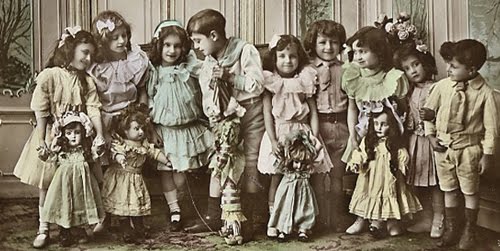Member Elaine Jackson did a program on Edith Flack Ackley, an author and doll artist. Elaine noted that cloth dolls were often the first dolls given to children. She said that from the 1920s through the 1940s, many stay-at-home mothers began making and selling cloth dolls. This was a thriving industry, but many of these dolls were later discarded after they became worn or dirty from play. During this era, Ackley published books with patterns and instructions for making puppets and dolls. Elaine noted that in 1939, "Woman's Home Companion" magazine published doll patterns and other women's magazines followed suit, as well as offering kits.
Elaine told the club that Ackley was born in 1887 and grew up in an artistic family. Her father owned a paint store and both her mother and sister wrote children's books. Ackley's first husband, Floyd Ackley, was a jewelry designer. Their daughter, Telka, was born in 1918. After Floyd died, Ackley needed a way to support herself and Telka. She had been making marionettes and putting on puppet shows for years, so in 1929 she published her first book, Marionettes. The book included patterns for making cloth puppets in a pocket in the back of the book, as well as plays. Ackley in the 1930s also made marionettes for store displays. In 1938, she published her second book, Dolls to Make for Fun and Profit, and the following year she published A Doll Shop of Your Own. Ackley also created paper dolls and greeting cards, as well as making and selling her own dolls. She created an estimated 3,500 over her career, but except for some very rare examples carrying a ribbon with her name, Ackley's dolls are not marked. Telka became and artist and illustrator, painting still life images that included her mother's dolls, and these paintings were used for creating greeting cards. Ackley died in 1970.
This is an example of a marionette made from an Ackley pattern.
Elaine described some of the characteristics of a doll made using an Ackley pattern. The dolls had side seams and a flat face with embroidered eyes made with horizontal stitches and no nose. The toes of the feet pointed down unless they were stitched up and there were no fingers. The dolls were stuffed through the top of the head and Ackley recommended placing a stick or nail inside the head and neck to keep the head from flopping. The clothes were typically stitched closed, as Ackley did not mention buttons or snaps. Because these dolls were handmade by many different people, there are a lot of charming variations.























